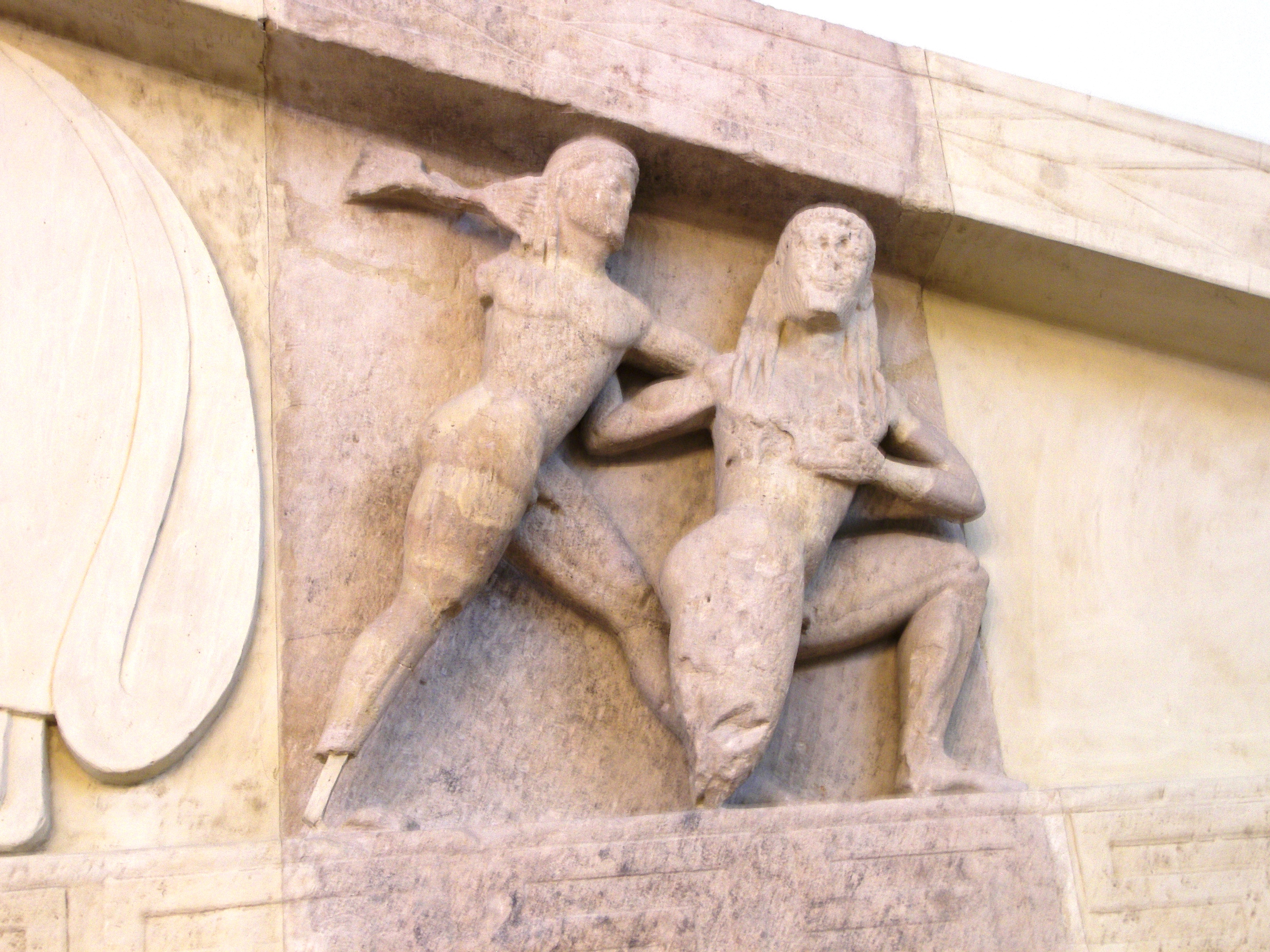Titanomachia on:
[Wikipedia]
[Google]
[Amazon]
 The ''Titanomachy'' (,
The ''Titanomachy'' (,
Eight surviving fragments
7th-century BC books Ancient Greek epic poems Lost poems References on Greek mythology
 The ''Titanomachy'' (,
The ''Titanomachy'' (, Latin
Latin ( or ) is a classical language belonging to the Italic languages, Italic branch of the Indo-European languages. Latin was originally spoken by the Latins (Italic tribe), Latins in Latium (now known as Lazio), the lower Tiber area aroun ...
: ''Titanomachia'') is a lost epic poem, which is a part of Greek mythology
Greek mythology is the body of myths originally told by the Ancient Greece, ancient Greeks, and a genre of ancient Greek folklore, today absorbed alongside Roman mythology into the broader designation of classical mythology. These stories conc ...
. It deals with the struggle that Zeus
Zeus (, ) is the chief deity of the List of Greek deities, Greek pantheon. He is a sky father, sky and thunder god in ancient Greek religion and Greek mythology, mythology, who rules as king of the gods on Mount Olympus.
Zeus is the child ...
and his siblings, the Olympian Gods
upright=1.8, Fragment of a relief (1st century BC1st century AD) depicting the twelve Olympians carrying their attributes in procession; from left to right: Hestia (scepter), Hermes (winged cap and staff), Aphrodite (veiled), Ares (helmet and s ...
, had in overthrowing their father Cronus
In ancient Greek religion and Greek mythology, mythology, Cronus, Cronos, or Kronos ( or ; ) was the leader and youngest of the Titans, the children of Gaia (Earth) and Uranus (mythology), Uranus (Sky). He overthrew his father and ruled dur ...
and his divine generation, the Titans
In Greek mythology, the Titans ( ; ) were the pre-Twelve Olympians, Olympian gods. According to the ''Theogony'' of Hesiod, they were the twelve children of the primordial parents Uranus (mythology), Uranus (Sky) and Gaia (Earth). The six male ...
.
The poem was traditionally ascribed to Eumelus of Corinth (8th century BC), a semi-legendary bard of the Bacchiad ruling family in archaic Corinth
Corinth ( ; , ) is a municipality in Corinthia in Greece. The successor to the ancient Corinth, ancient city of Corinth, it is a former municipality in Corinthia, Peloponnese (region), Peloponnese, which is located in south-central Greece. Sin ...
, who was treasured as the traditional composer of the '' Prosodion'', the processional anthem of Messenian independence that was performed on Delos
Delos (; ; ''Dêlos'', ''Dâlos''), is a small Greek island near Mykonos, close to the centre of the Cyclades archipelago. Though only in area, it is one of the most important mythological, historical, and archaeological sites in Greece. ...
.
Even in Antiquity many authors cited ''Titanomachia'' without an author's name. M. L. WestM.L. West, "'Eumelos': A Corinthian Epic Cycle?" ''The Journal of Hellenic Studies'' 122 (2002), pp. 109–133. The present article follows West's analysis. in analyzing the evidence concludes that the name of Eumelos was attached to the poem as the only name available. From the very patchy evidence, it seems that "Eumelos"' account of the ''Titanomachy'' differed from the surviving account of Hesiod
Hesiod ( or ; ''Hēsíodos''; ) was an ancient Greece, Greek poet generally thought to have been active between 750 and 650 BC, around the same time as Homer.M. L. West, ''Hesiod: Theogony'', Oxford University Press (1966), p. 40.Jasper Gr ...
's ''Theogony
The ''Theogony'' () is a poem by Hesiod (8th–7th century BC) describing the origins and genealogy, genealogies of the Greek gods, composed . It is written in the Homeric Greek, epic dialect of Ancient Greek and contains 1,022 lines. It is one ...
'' at salient points. The 8th century BC date for the poem is not possible; West ascribes a late seventh-century date as the earliest.
The ''Titanomachy'' was divided into at least two books. The battle of Olympians and Titans
In Greek mythology, the Titans ( ; ) were the pre-Twelve Olympians, Olympian gods. According to the ''Theogony'' of Hesiod, they were the twelve children of the primordial parents Uranus (mythology), Uranus (Sky) and Gaia (Earth). The six male ...
was preceded by some sort of theogony, or genealogy of the primal gods, in which, the Byzantine writer Lydus remarked,''De mensibus'' 4.71. the author of Titanomachy placed the birth of Zeus, not in Crete
Crete ( ; , Modern Greek, Modern: , Ancient Greek, Ancient: ) is the largest and most populous of the Greek islands, the List of islands by area, 88th largest island in the world and the List of islands in the Mediterranean#By area, fifth la ...
, but in Lydia
Lydia (; ) was an Iron Age Monarchy, kingdom situated in western Anatolia, in modern-day Turkey. Later, it became an important province of the Achaemenid Empire and then the Roman Empire. Its capital was Sardis.
At some point before 800 BC, ...
, which should signify on Mount Sipylus.
References
{{reflistExternal links
Eight surviving fragments
7th-century BC books Ancient Greek epic poems Lost poems References on Greek mythology